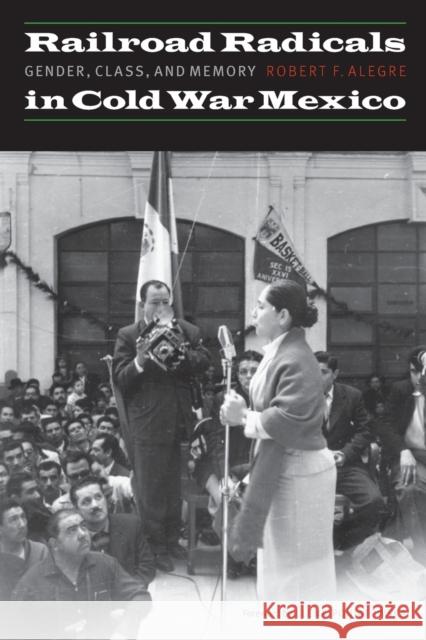Railroad Radicals in Cold War Mexico: Gender, Class, and Memory » książka
Railroad Radicals in Cold War Mexico: Gender, Class, and Memory
ISBN-13: 9780803244849 / Angielski / Miękka / 2014 / 270 str.
Despite the Mexican government's projected image of prosperity and modernity in the years following World War II, workers who felt that Mexico's progress had come at their expense became increasingly discontented. From 1948 to 1958, unelected and often corrupt officials of STFRM, the railroad workers' union, collaborated with the ruling Institutionalized Revolutionary Party (PRI) to freeze wages for the rank and file. In response, members of STFRM staged a series of labor strikes in 1958 and 1959 that inspired a nationwide working-class movement. The Mexican army crushed the last strike on March 26, 1959, and union members discovered that in the context of the Cold War, exercising their constitutional right to organize and strike appeared radical, even subversive. Railroad Radicals in Cold War Mexico examines a pivotal moment in post-World War II Mexican history. This study of railroad labor activism argues that the railway strikes of the 1950s constituted the first and boldest challenge to PRI rule and marked the beginning of mass dissatisfaction with the ruling party. In addition, Robert F. Alegre gives the wives of the railroad workers a narrative place in this history by incorporating issues of gender identity in his analysis. Robert F. Alegre is an assistant professor of history and affiliated faculty in the Women's and Gender Studies Program at the University of New England. His work has been published in the Journal of Women's History, Labour/Le Travail, and Reviews in History. Elena Poniatowska received a lifetime achievement award from the International Women's Media Foundation and is the first woman to win Mexico's National Journalism Prize.











